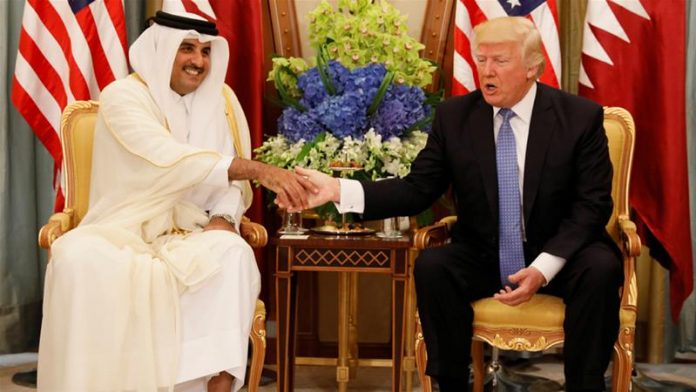US President Donald Trump refused to meet Sheikh Tamim Al-Thani, Qatari Emir, over the Arab nation’s ties with terrorist outfits like Muslim Brotherhood and for supporting Iran revolutionary guards. In an unprecedented move, US blacklisted Iran’s elite force – Iranian revolutionary guard Corps – as a terrorist organisation, earlier this month.
The move has been supported by a majority of the Middle East nations, except for Qatar, Turkey and Iraq, who say Trump made it a one-sided decision to corner Iran.
In response to US labelling of IRGC, Qatar said that no country can declare another country’s armed forces a terrorist organization.
Trump and US should deal with Iranian army’s behavior by exploring other routes like sanctions.
Qatar’s soft corner for IRGC stems from the fact that IRGC forces were used by Sheikh Tamim for his security inside his palace. Two years ago he also gave a statement, hinting at Qatar’s close ties with Iran. He said there was “no wisdom in harboring hostility toward Iran.”
Besides sponsoring terrorism through conventional channels, Qatar is now switching to more sophisticated routes, including information terrorism. The Gulf state is altering the face of international journalism, especially the American media by paying millions of dollars to influence and manipulate the global public opinion.
Through Nathan Thrall’s article published last month in the New York Times Magazine, Qatar is being seen as trying to promote anti-Semitism. It was also found that Thrall was getting indirect funds through Qatar in the name of support for his organisation.
Qatar’s double-dealings were revealed multiple times including earlier this month when an American media agency, Conservative Review, ran a full report revealing how four of the CNN’s national security analyst had undisclosed ties with Qatar, two of whom were full-time employees. Qatar allegedly hit back at its regional rivals by using its pawn analyst at CNN.
